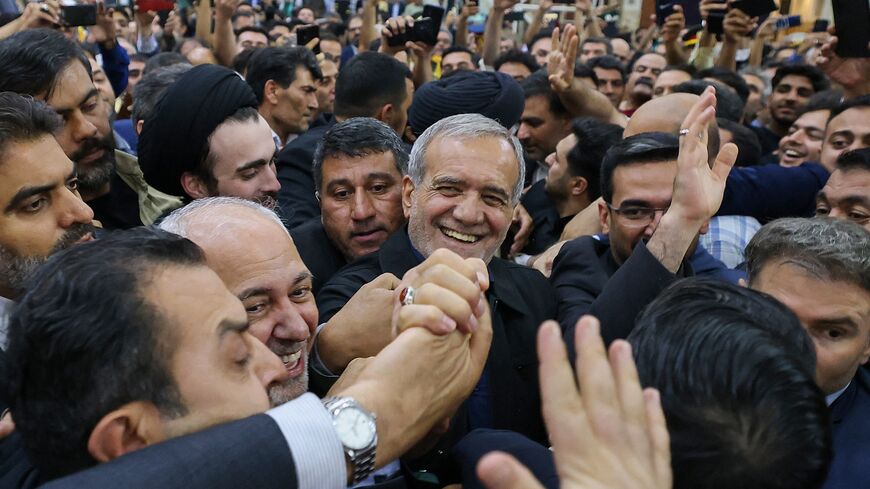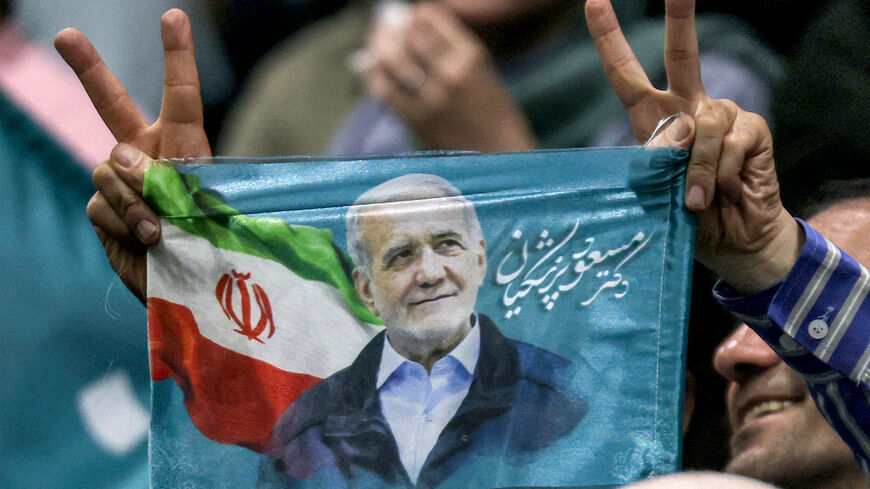After Raisi's death, China looks for answers on Iran's Khamenei succession
Raisi was hailed as a "good friend" of China and while his death is unlikely to stir those ties, Beijing is keeping watch of the race in Iran to succeed Khamenei.

The helicopter crash in Iran’s East Azerbaijan province that killed Iranian President Raisi on Sunday not only brings new uncertainty and potential instability to Tehran’s domestic politics but also introduces questions about the country’s external strategy during a time of incessant crises stemming from the wars in Gaza and Ukraine. One of Iran’s few remaining partners, China is closely watching for the potential repercussions from Raisi’s death and its implications regarding how their bilateral relationship will be affected. While the immediate impact might be limited, long-term questions on the future of Iranian politics remain.
Within hours of Raisi’s death being confirmed, Chinese President Xi Xinjing sent his condolences to Iran’s first vice president and now acting President Mohammad Mokhber. Xi praised Raisi as “having made important contributions to maintaining security and stability of Iran and the promotion of the country’s development and prosperity; and having made positive efforts to reinforce and deepen Sino-Iran comprehensive strategic partnership.” He hailed the late president as a “good friend” and expressed the belief that the bilateral partnership will advance with efforts from both sides.
Raisi looked East
Raisi indeed had witnessed and facilitated important developments in Iran’s relationship with China during his presidency. The China-Iran 25-year cooperation agreement was first signed in March of 2021 under former President Rouhani, but the actual initiation of the agreement happened under President Raisi in January of 2022, four months after taking office. During Raisi’s presidency, China’s enthusiasm in pursuing economic and trade ties with Iran was adversely affected by the concerns over international sanctions, and Beijing has indeed prioritized building comprehensive ties with the Arab states. These two factors have led to a rather lukewarm economic engagement from China toward Iran. However, one exception of that trend is energy exports. Raisi’s presidency had seen an overall upward trend in China’s import of Iranian crude oil since the exports hit a historical low in terms of volume by June 2019 due to intensified US sanctions.
The most significant event in China-Iran relations under President Raisi was his state visit to Beijing in February 2023 and the Saudi-Iran peace deal signed in Beijing the following month. For his visit to Beijing, Raisi brought key members of his cabinet focused on trade, agriculture, urban development and investment. Although key economic deals were not firmed, the Saudi-Iran deal is inevitably seen as a feather in China’s cap and is advancing Beijing’s push bring Tehran to the track of peace and reconciliation with Saudi Arabia.
Uncertainty around Khamenei's successor
Despite uninspiring economic data, China and Iran have strengthened the alignment of their strategic postures in external affairs, especially in terms of opposing the US “hegemonism and bullying", as quoted from the Raisi-Xi meeting in Beijing in 2023. Both countries have supported Russia, albeit in different ways, in the Ukraine war. And the three countries continued their joint naval exercises in 2022, 2023 and 2024 — a visible statement of their intent to align and cooperate. China has been called to use its influence on Iran to bring the Houthis under control in the recent Red Sea crisis. With China’s strong support, Iran under Raisi joined Shanghai Cooperation Organization and BRICS in 2023.
As China looks ahead at post-Raisi Iran, Beijing is not particularly concerned that the next president of Iran will significantly change the direction of Iran’s foreign strategy. That is decided by Iran’s supreme leader, Ayatollah Ali Khamenei, and is unlikely to shift in the foreseeable future. There are some observations that with the death of Raisi and the inevitable process of determining the next leadership, Iran’s priority will remain domestic for the time being. That means the Islamic Republic will most likely reduce the energy and resources spent on relations with the West, as well as on the Gaza crisis, which may not be bad news for China, given that it is in search of more certainty and stability in the region.
The biggest uncertainty associated with Raisi’s death is the successor of Khamenei. Raisi was seen as the heir apparent of the supreme leader, but now Khamanei needs an alternative. This does not necessarily equate to instability, but the future is more uncertain as the result. This may not translate into any immediate policy adjustment on China’s part, but it does play into China's calculus and its monitoring of Iranian politics.
Raisi’s death in the helicopter crash does come as a shock for China, the Chinese leaders and its general public. There are some conspiratorial speculations in China about a US and Israeli role in it, but they do not come from credible sources or authorities on Middle East affairs. The lament by Chinese netizens since Monday about Raisi’s imprudent choice to travel by helicopters, especially a 40-year old Bell-212, reinforces China’s sympathy for Iran for the sanctions the country has suffered (leading to its inability to obtain needed replacement parts). The immediate impact of Raisi’s death on China and China’s policy is limited, with Beijing keeping a watchful eye on what comes next.







